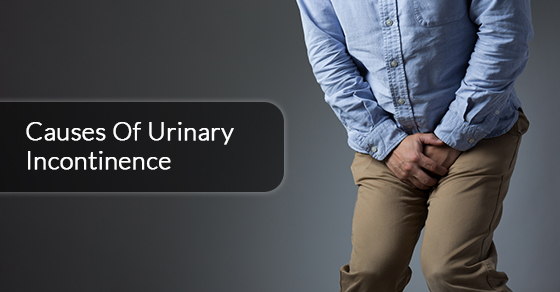18 Causes Of Urinary Incontinence
When you lose the ability to control your bladder, it can be embarrassing. Many people who suffer from this problem are scared they won’t be able to get to a toilet in time, and so avoid public places. Urinary incontinence can affect people of all ages but it is nothing to be ashamed of.
What is urinary incontinence?
Urinary incontinence is the loss of bladder control. Although often associated with aging, urinary incontinence can plague younger people too. It can range from the occasional leaking of urine due to a cough or sneeze, to a sudden urge to go to the bathroom that’s so strong it can be painful.
There are different types of urinary incontinence:
- Stress incontinenceThis occurs when pressure is exerted on your bladder from laughing, sneezing, coughing, exercising or heaving lifting. Stress incontinence usually results in small urine leaks.
- Urge incontinenceThis type of incontinence is marked by an intense, sudden urge to urinate that leads to an involuntary loss of urine. Urge incontinence will make you feel like you need to go to the bathroom often and will interrupt your sleep.
- Overflow incontinenceWhen you experience frequent or constant urine dribbling because your bladder won’t empty completely, this is called overflow incontinence.
- Functional incontinenceThis occurs when a physical or mental condition stops you from making it to the bathroom in time. Conditions like arthritis might make you unable to unzip your pants fast, or you may be recovering from an injury that has left you unable to move quickly.
- Mixed incontinenceWhen you are dealing with more than one type of those mentioned above, you are experiencing what is known as mixed incontinence.
What causes urinary incontinence?
Many people assume that urinary incontinence is a disease, when in fact it is a symptom of various medical problems, everyday habits and physical issues.
The causes of urinary incontinence are:
- Consuming too many stimulantsCertain foods and drinks are diuretics and can cause your bladder to work overtime and increase the amount of urine you produce. Alcohol, caffeine, chocolate, chilli peppers, taking too much vitamin C or consuming a lot of citrus fruits, carbonated beverages, artificial sweeteners, and foods that have high concentrations of spice, sugar or acid are known incontinence causes.
- Medication Some medications like sedatives and muscle relaxants can also act as diuretics.
- Urinary tract infectionThis treatable condition can irritate your bladder, giving you strong urges to urinate and cause leakage.
- Constipation Our rectums are so close to our bladders that they share some of the same nerves. When our stool becomes hard and compacted, these nerves can overreact and lead us to urinate frequently.
- Pregnancy The weight of the fetus and hormonal changes in the body can cause stress incontinence.
- Giving birthAfter a vaginal delivery, the muscles we use to control our bladder may weaken and the nerves and supportive tissues can cause the pelvic floor to drop, leading to incontinence.
- Urinary tract obstructionsIf you have a tumour, urinary stones, or other obstructions in the tract or bladder, you may experience a leakage of urine.
- Neurological disordersStroke, brain tumours, multiple sclerosis, spinal injury, Parkinson’s disease and other neurological disorders can confuse the nerve signals involved with bladder control and lead to incontinence.
- Prostate problems Generally occurring in older men, incontinence can come from an enlarged prostate or prostate cancer. Furthermore, the medical interventions involved in treating prostate cancer can create incontinence.
- Menopause Following menopause, women are unable to produce as much estrogen as they used to. Estrogen is a hormone that keeps the bladder lining and the urethra in good health. The less estrogen that is produced, the more likely incontinence is to occur.
- HysterectomyThe bladder and uterus share many of the same supportive ligaments and muscles. When a woman undergoes a hysterectomy that involves removing the uterus, the pelvic floor muscles may be affected leading to incontinence.
- AgingUnfortunately, as we age, our bladder does too. The bladder’s muscles deteriorate and and so does its capacity to store urine leaving us to experience involuntary bladder contractions.
- GenderWomen are more likely to experience incontinence than men because of the way the reproductive system sits near the bladder.
- WeightBeing overweight can lead to increased pressure on the bladder and its surrounding muscles causing them to weaken when you cough, laugh, or sneeze, leading to leakage.
- SmokingProlonged tobacco use can increase the risk of urinary incontinence because smoking is known to overstimulate the bladder.
- GeneticsIf someone in your immediate family suffers from incontinence, your chances of developing it are higher.
- DiabetesDiabetics are more prone to incontinence due high blood sugar levels.
- ArthritisWhen your joints are inflamed or crippled due to arthritis, you may suffer from functional incontinence due to the fact that you cannot get your pants off fast enough.
If you are experiencing urinary incontinence, please contact us. At Focus Physiotherapy we offer pelvic floor retraining and other therapeutic modalities designed to treat urinary incontinence.


